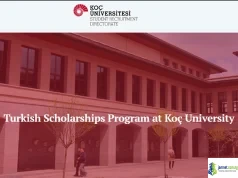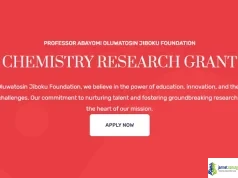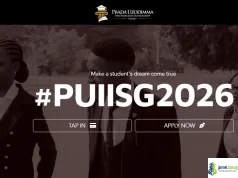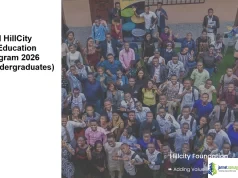The University of Liechtenstein Erasmus+ Grants 2026 is a fully funded opportunity supporting international mobility for students (Bachelor’s, Master’s, PhD, and Diploma programs), teaching staff, and researchers enrolled or employed at the University of Liechtenstein. Supported by the European Union, the program facilitates funded study exchanges, internship opportunities, and training stays within Europe and globally. The grants are comprehensive, providing a Fully Funded Erasmus+ experience with financial support that varies by the host country group and mobility type. For study mobility, the grant is up to EUR 606/month, with an extra EUR 250/month available for students with fewer opportunities. Internship mobility includes an additional EUR 150/month supplement. Staff mobility is also supported with daily allowances and travel grants.
Key application deadlines are June 15 for the winter semester and November 15 for the summer semester. Applicants must be currently enrolled at the University of Liechtenstein, have completed at least one semester for study mobility, and demonstrate adequate language proficiency.


The University of Liechtenstein Erasmus+ Grants Scholarship 2026 represents a cornerstone of internationalization for the university, providing exceptional, fully funded opportunities for its academic community to engage in global exchange. This program, backed by the prestigious European Union’s Erasmus+ Programme, is designed to propel academic and professional development through mobility, intercultural exchange, and hands-on experience abroad.

Join our Telegram Channel for Instant Scholarship Updates
The University of Liechtenstein, situated in Vaduz, the capital, maintains a strong reputation for innovation, specialized research, and a commitment to practical, real-world learning across its key disciplines, which include architecture, business, finance, and information systems. Participation in the Erasmus+ program not only provides financial assistance but also ensures full academic recognition for studies or training completed abroad, making the experience seamless and strategically beneficial.
Benefits of the University of Liechtenstein Erasmus+ Grants 2026
The Erasmus+ Grants provide targeted financial support designed to offset the cost of living and travel abroad. The amount of funding is carefully calculated based on the host country’s cost of living and the type of mobility undertaken.
1. Erasmus+ Student Study Mobility (Long-Term)
Monthly grants for students undertaking a study exchange are categorized based on the host country group:
- Country Group 1 (High Cost of Living): The monthly grant is EUR 606/month.
- Country Groups 2 and 3 (Medium/Lower Cost of Living): The monthly grant is EUR 550/month.
Additional Support Top-Ups:
- Fewer Opportunities Top-Up: A significant supplement of EUR 250/month is provided for students with fewer opportunities, which includes those with disabilities, chronic illnesses, or students with dependent children.
- Travel Allowance: An allowance is calculated based on the distance between the University of Liechtenstein and the host destination, using the European Union’s official distance calculator.
- Green Travel Bonus: Participants who choose to utilize eco-friendly travel options (e.g., train, bus, shared car) are eligible for a Green Travel Bonus, which can provide support for up to 6 extra travel days for their journey.
2. Erasmus+ Internship Mobility (Student Apprenticeships)
This funding category applies to students undertaking full-time internship opportunities abroad, including student apprenticeships, at companies, research centers, or other relevant organizations.
- Base Monthly Grant: This is similar to study mobility, ranging from EUR 606/month (Group 1) to EUR 550/month (Groups 2 and 3).
- Internship Supplement: An additional EUR 150/month supplement is provided specifically to recognize the professional nature of the stay, resulting in a higher total monthly stipend for interns.
- Inclusion Top-Up: The EUR 250/month inclusion top-up is also available for eligible students with fewer opportunities.
- Travel and Green Travel: Allowances are calculated identically to the study mobility component based on distance and mode of transport.
3. Erasmus+ Staff Mobility Liechtenstein Scholarship (Teaching and Training)
The support for staff is provided as a daily allowance, supplemented by a distance-based travel allowance:
- Daily Allowance (Per Day Rates):
- Group 1 (High Cost): EUR 190/day
- Group 2 (Medium Cost): EUR 170/day
- Group 3 (Lower Cost): EUR 140/day
- Travel Allowance and Green Travel: Calculated according to the EU distance calculator, with the possibility of receiving support for up to 6 additional travel days for sustainable travel options.
4. Erasmus+ Short-Term Mobility / Blended Intensive Programmes (BIP)
BIPs are short, intense programs often combining physical mobility with a virtual component. The daily rates are structured to support these brief but concentrated stays:
- Daily Allowance (Short-Term):
- EUR 79/day for the first 14 days.
- EUR 56/day for days 15 through 30.
- Top-Up for Fewer Opportunities: An additional allowance of EUR 100 to EUR 150 per day is provided to eligible students.
- Travel Allowance: As per the EU distance calculator.
5. Erasmus+ International Mobility Program (Beyond Europe)
The University of Liechtenstein participates in specific agreements that extend mobility outside of the standard European Erasmus+ area (often referred to as International Credit Mobility or ICM).
- Students: A fixed monthly grant of EUR 700/month.
- Staff: A daily allowance of EUR 190/day plus the relevant travel allowance.
- PhD Students (Specific Rates):
- EUR 79/day for non-employed doctoral candidates (or those with a similar status).
- EUR 190/day for doctoral candidates employed as staff (i.e., teaching or research assistants).
Eligible Participants and Degree Levels
The program is structured to support the entire academic and professional pipeline of the university:
- Students: Open to those pursuing a Bachelor’s, Master’s, or PhD degree, as well as students in specialized Diploma programs. This ensures that students at any stage of their higher education journey can access international exposure.
- University Staff: This includes teaching staff (lecturers and professors), administrative staff, and researchers. The staff mobility component is crucial for fostering institutional cooperation and transferring best practices across European and international universities.
Eligible Subjects and Disciplines
The Erasmus+ mobility programme is applicable to all study fields and disciplines at the University of Liechtenstein. Students studying architecture, business, finance, information systems, entrepreneurship, and all other available subjects are eligible to participate.
The primary requirement is alignment between the academic content of the home institution (University of Liechtenstein) and the host institution or organization. The required Learning Agreement is the official document that ensures this academic recognition.
Core Eligibility Criteria
To qualify for any mobility grant under the University of Liechtenstein Erasmus+ Grants 2026, applicants must satisfy a set of specific institutional and programmatic requirements:
- Enrollment or Employment: The applicant must be either currently enrolled as a student (Bachelor’s, Master’s, PhD, or Diploma program) or officially employed as a teaching, administrative, or research staff member at the University of Liechtenstein. Nationality is irrelevant; both international students and domestic students at the university are equally eligible to apply for mobility to other European or partner countries.
- Academic Progress Requirement (Students Only): Students applying for Erasmus+ study mobility must have successfully completed at least one semester of study at the University of Liechtenstein prior to the application or commencement of the exchange. This prerequisite ensures students are acclimatized to the university environment and prepared for the academic rigor abroad.
- Mobility Purpose and Documentation: The planned stay must be for one of the recognized Erasmus+ purposes: study, internship, teaching, or training. All participants must commit to adhering to the comprehensive set of Erasmus+ regulations, which include completing the Learning Agreement (for students), the Mobility Agreement (for staff), and the official Grant Agreement. Students must also secure a Transcript of Records from the host institution upon completion.
- Duration of Stay: The program enforces specific minimum and maximum durations:
- Student Study Mobility: Minimum duration of 2 months and a maximum of 12 months per study cycle (Bachelor’s, Master’s, PhD).
- Staff Mobility (Teaching or Training): Minimum duration of 2 days and up to a maximum of 2 months (excluding travel time).
- Short-Term/Blended Intensive Programmes (BIP): Requires a minimum physical stay of 5 days.
- Language Requirements: Applicants must demonstrate adequate language proficiency in the host institution’s teaching or working language. While no universal test score is stated, applicants will often need to provide evidence or be assessed by the University of Liechtenstein or the host institution to ensure they can successfully participate in their chosen program.
Application Procedure and Key Deadlines
The application process is managed through the University of Liechtenstein’s International Office, which acts as the central coordinating body for all outgoing mobility.
Phase 1: Planning and Preparation
- Select Destination: Applicants must first choose a partner institution or organization within the Erasmus+ network that aligns with their academic or professional goals. For students, this requires identifying a university where their required courses are offered.
- Contact International Office: It is essential to contact the International Office of the University of Liechtenstein early in the process. The International Office provides critical guidance on selecting partners, fulfilling documentation requirements, and ensuring the mobility fits within the applicant’s degree plan.
Phase 2: Application Submission
- Grant Application Submission: The applicant must submit their official application for the Erasmus+ Grant to the International Office before the relevant deadline.
- Required Documents: Key documents to be completed and submitted include:
- Learning Agreement (Students): This crucial document is signed by the student, the University of Liechtenstein, and the host institution. It outlines the courses to be taken or the tasks to be completed during the exchange, guaranteeing academic recognition.
- Mobility Plan / Training Agreement (Staff/Interns): This details the proposed teaching or training activities and the expected learning outcomes.
- Grant Agreement: The financial contract between the participant and the University of Liechtenstein, detailing the exact funding amount and responsibilities.
Note for Internships: For students planning an internship abroad (internship opportunities), the Erasmus+ grant application must be submitted at least one month before the start date of the internship. This is a special, rolling deadline separate from the fixed semester dates.
Phase 3: Confirmation and Funding
- Confirmation: The International Office will confirm the acceptance and nomination to the host partner.
- Funding Details: The International Office provides the final funding details based on the signed Grant Agreement, and the participants receive the funding in installments, typically one before and one after the mobility period.
The Value of Erasmus+ Participation
Participation in the University of Liechtenstein Erasmus+ Grants Scholarship 2026 provides far more than mere financial support; it offers profound strategic benefits for career and academic life:
- Enhanced Employability: International experience is highly valued by employers globally. The skills gained—intercultural communication, adaptability, and independence—are crucial for success in a modern, globalized job market. The additional Internship Supplement encourages this professional development.
- Academic Differentiation: Studying or researching abroad offers access to specialized courses, different teaching methodologies, and unique academic resources that may not be available at the home institution, providing a competitive edge for subsequent studies or research.
- Cultural Competence: Living and working in a new country dramatically improves cultural competence and linguistic skills. This deepens a person’s understanding of global issues and fosters a mindset of diplomacy and cooperation.
- Networking Opportunities: Fellows become part of a massive network of current and former Erasmus+ participants, establishing valuable connections with peers and professionals across Europe and the world. This network is an invaluable resource for future collaboration and career development.
Application Deadlines
The University of Liechtenstein utilizes two fixed annual deadlines, allowing for careful planning and placement:
- For the Winter Semester (Starting September/October): The deadline is June 15 each year.
- For the Summer Semester (Starting February/March): The deadline is November 15 each year.
CLICK HERE TO APPLY
Frequently Asked Questions (FAQ) About the University of Liechtenstein Erasmus+ Grants 2026
1. Is the University of Liechtenstein Erasmus+ Grants 2026 open to students of all nationalities?
Yes. The program is open to students and staff currently enrolled or employed at the University of Liechtenstein, regardless of their nationality. International students at the university are equally eligible to apply for mobility opportunities.
2. What is the minimum academic requirement for students applying for study mobility?
Students must have completed at least one semester of study at the University of Liechtenstein before commencing their Erasmus+ study mobility. This ensures they are familiar with the university system before undertaking an exchange.
3. Does the Erasmus+ grant cover the full tuition fee at the host institution?
Yes, usually. The Erasmus+ program mandates that mobility participants do not pay tuition fees to the host university. They continue to pay any applicable fees only to the University of Liechtenstein (the home institution).
4. What is the maximum duration for which a student can receive the study grant?
The maximum duration for which a student can receive the study grant is 12 months per study cycle. This limit applies separately to the Bachelor’s, Master’s, and PhD cycles.
5. What are the country groups (Group 1, 2, 3) based upon for determining the grant amount?
The country groups are determined by the European Union based on the cost of living in the host country. Group 1 countries typically have a high cost of living, while Groups 2 and 3 have medium or lower costs, thus receiving slightly different monthly grant amounts.
6. Can a Master’s student apply for both a study exchange and an internship during the same study cycle?
Yes. Students may combine different types of mobility, such as a study exchange and an internship, provided the total duration does not exceed 12 months within that specific Master’s cycle.
7. What steps should a student take to apply for an internship grant?
The student should secure an official placement or internship opportunity with a host organization first. They must then contact the International Office and submit the Erasmus+ grant application and a completed Training Agreement at least one month before the internship start date.
8. Is the Green Travel Bonus only available to students?
No. The Green Travel Bonus is available to all participants—students and staff—who choose to utilize sustainable, eco-friendly travel options (e.g., train, bus, shared car) instead of flying, recognizing their contribution to environmental sustainability.
9. What is the significance of the Learning Agreement for student mobility?
The Learning Agreement is the most significant administrative document. It guarantees academic recognition, ensuring that courses successfully completed at the host institution are formally recognized and counted towards the student’s degree at the University of Liechtenstein.
10. Do PhD students who are also employed by the university receive a different daily allowance?
Yes. PhD students who are employed as teaching or research staff members receive the higher daily allowance rate of EUR 190/day for staff mobility, whereas non-employed PhD students receive the student rate of EUR 79/day for short-term mobility.
11. Is there any financial support provided for participation in a Diploma program mobility?
Yes. Students enrolled in Diploma programs are eligible for the standard Erasmus+ student mobility grants, following the same monthly rates and requirements as Bachelor’s and Master’s students, as long as the mobility fits within the duration limits of their study cycle.
12. If I miss the June 15 deadline for the winter semester, can I apply later?
No. The deadlines are strictly enforced. Missing the June 15 deadline means the student cannot apply for mobility starting in the upcoming winter semester. The applicant would need to wait for the next application window, which is November 15 for the following summer semester.













